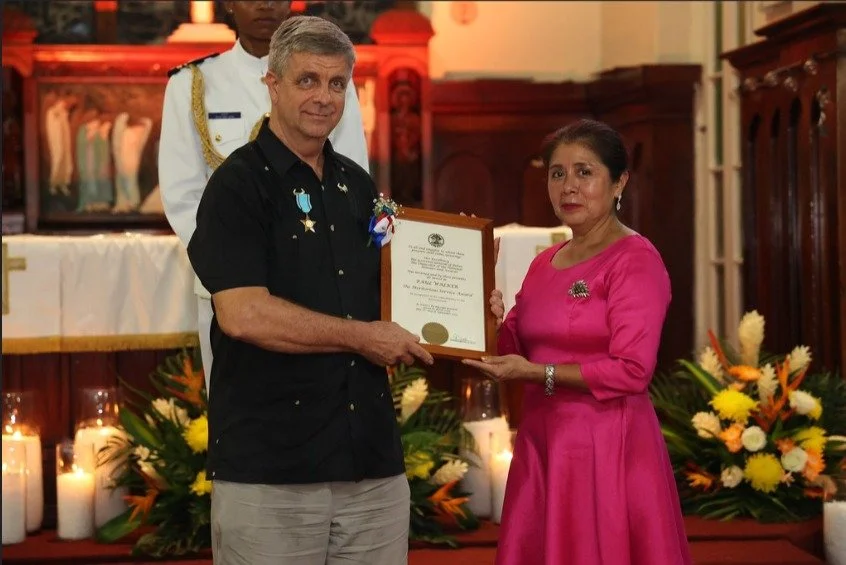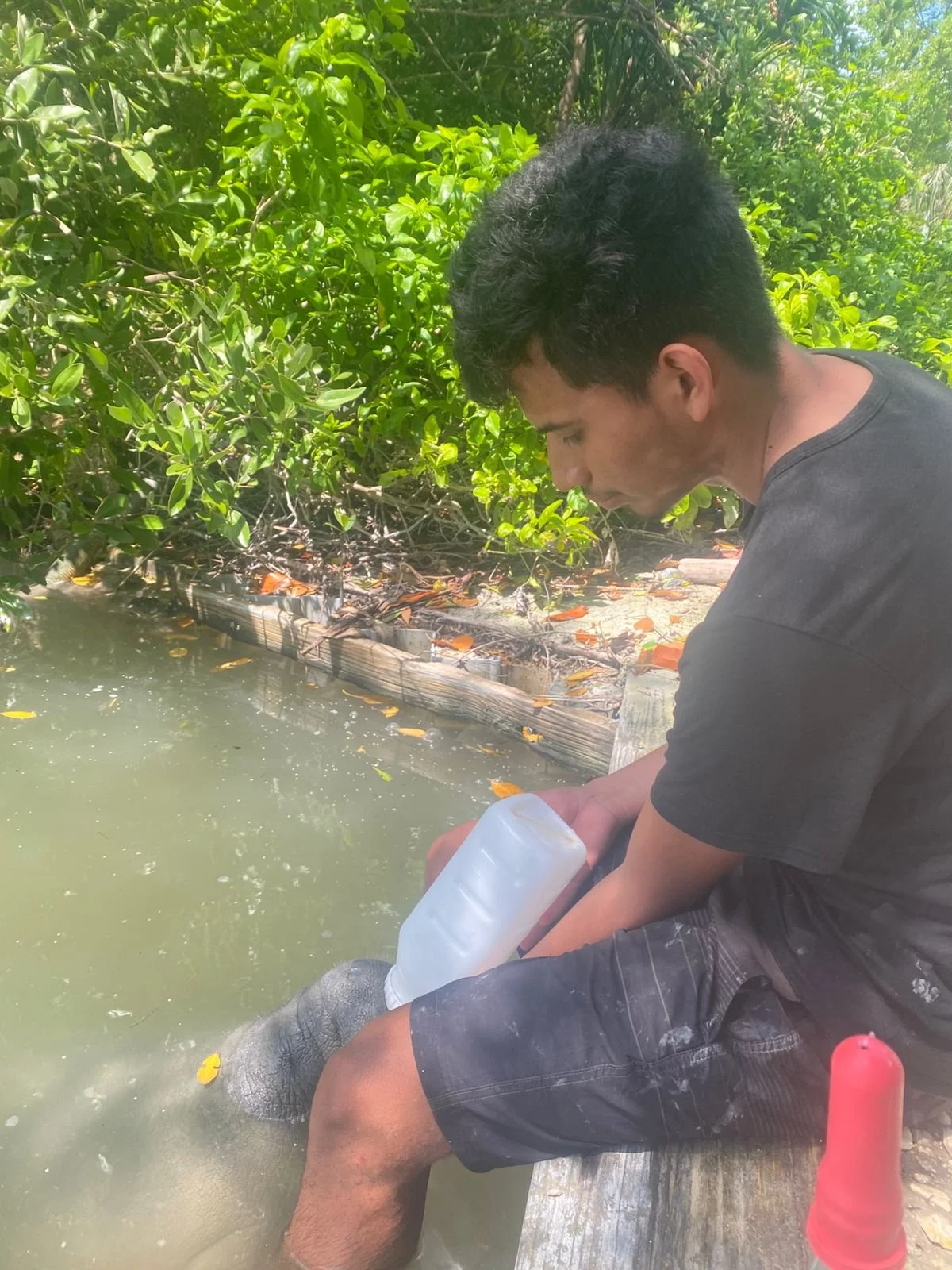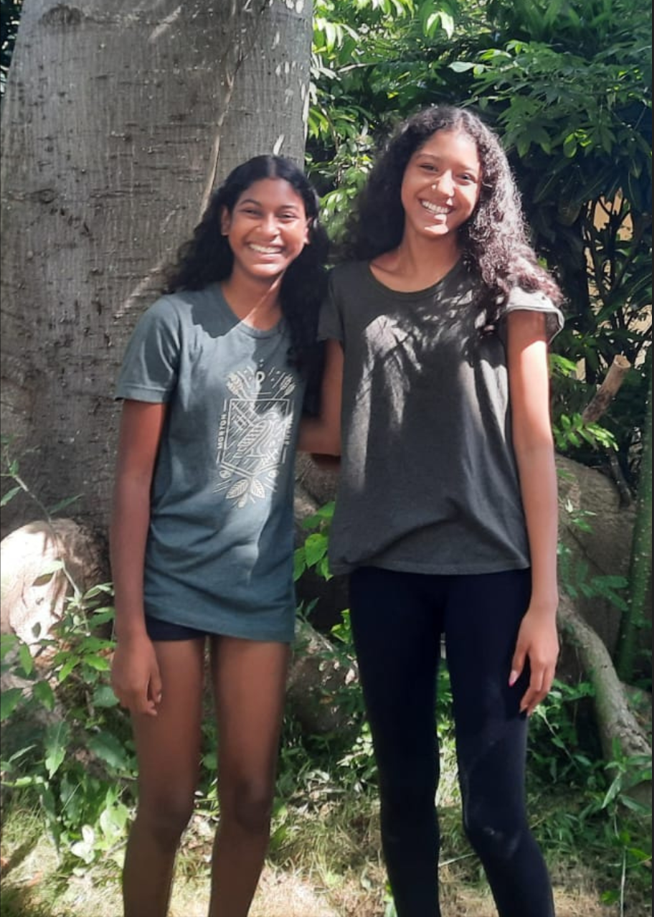Wildtracks 2024 Annual Report: Celebrating 25 Years of Manatee Rehabilitation and Conservation in Belize
As Wildtracks marks 25 years of manatee rehabilitation in Belize, the 2024 Annual Report reflects a year of progress, resilience, and renewed commitment to the conservation of one of Belize’s most iconic species — the Antillean (or Greater Caribbean) manatee.
This year saw the completion of a new, purpose-built Manatee Rehabilitation Centre, replacing the original building that had served as an interim measure for more than two decades. With support from the Belize Fund for a Sustainable Future, Twycross Zoo, Burger’s Zoo, and Save the Manatee Club, this upgrade significantly strengthens Belize’s national capacity for manatee rescue, rehabilitation, and release.
In 2024, Wildtracks continued to respond to manatees in distress across Belize — providing emergency care, hand-rearing orphaned calves, and preparing rehabilitated individuals like Tess and Toby for soft release into the wild. Each success story represents the dedication of an extraordinary team of staff, volunteers, and partners who make manatee conservation possible.
Beyond rehabilitation, Wildtracks continued to build national conservation capacity, training officers from the Belize Fisheries and Forest Departments, and co-management partners, in first response care and rehabilitation. Through partnerships with WildTeam UK, three accredited training courses in strategic conservation planning, project management, and grant writing were delivered, strengthening skills across eleven organizations managing nearly 300,000 hectares of manatee-critical habitat in Belize.
Two new Manatee Conservation Action Plans, for Corozal Bay and Swallow Caye Wildlife Sanctuaries, were also completed, providing practical, science-based roadmaps for safeguarding manatees and their habitats well into the future.
These achievements build on years of collaboration between Wildtracks, the Belize Fisheries Department, the Sarteneja Alliance for Conservation and Development, and our many national and international partners. Together, we are ensuring that Belize remains a stronghold for this endangered species — keeping the wild in Belize’s wildlife for generations to come.
📘 Read the full 2024 Annual Report: Manatee Rehabilitation Centre




























